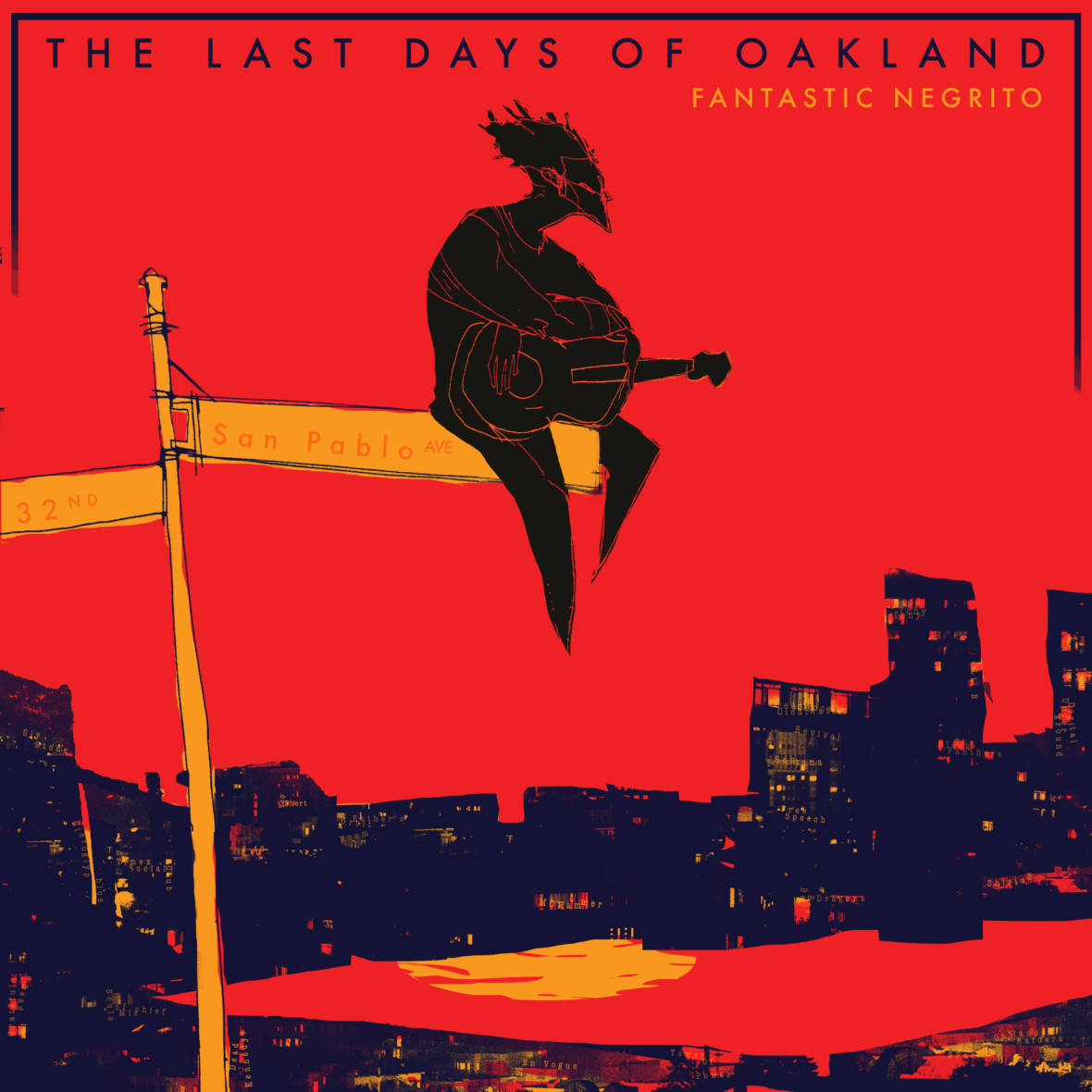The East Bay has a long history of inspiring musicians like Too Short, Tupac Shakur, Creedence Clearwater Revival and Metallica, along with birthing the Black Panthers, the Free Speech Movement, and the East Bay Dragons Motorcycle Club. It’s that diverse and eclectic mix of artistry, culture and history that has drawn so many artists to the area, and that’s kept black roots musician Xavier Dphrepaulezz, a.k.a. Fantastic Negrito, grounded in his hometown of Oakland. (His music label-turned-artist collective Blackball Universe operates from nondescript offices in Jack London’s warehouse district.)
Fantastic Negrito’s new album is The Last Days of Oakland, the title attesting to the reality that the city he was born and raised in is fast becoming unrecognizable. Oakland has lost 10 percent of its African American population in the last 10 years, capping a continual, steady decline, with African Americans making up 47% of the population in 1980; 44 % in 1990; 35% in 2000; and 27.3% in 2010. When the city passed a 90-day moratorium on rent increases this year, leaders estimated one in four Oakland residents were at risk of being displaced.
The changes are undeniable, but Dphrepaulezz, 48, cautions that the tumultuous shift should be met with calm — advice that only a man who’s had a nine-millimeter gun pointed at his head and who’s survived a near-fatal car accident could perhaps heed. “If we panic,” says Dphrepaulezz, “that’s when we get into trouble.”

At a recent Oakland First Friday event, KQED Arts’ cameras captured Fantastic Negrito’s free record release party for The Last Days of Oakland. Coming off a 43-city tour across four continents, Dphrepaulezz called Oakland “the greatest tribe of people ever,” and between spirited performances of new songs like “Working Poor” and “Hump Thru the Winter,” shouted to the crowd: “Keep money in Oakland!”
“We have to be creative, and it’s the creative community and artists who need to get into the fray and choose who we’re going to be in this new Oakland,” adds Dphrepaulezz.

